Which Mulch Is Best For Landscaping
Title: Which Mulch is Best for Landscaping?
Introduction:
Mulch is a layer of organic or inorganic material that is spread around plants to help improve the health and appearance of your landscape. It can help retain moisture in the soil, suppress weeds, and protect plants from pests and diseases. Mulch can also add color and texture to your landscape, and it can help to extend the life of your plants.
There are many different types of mulch available, each with its own unique benefits. Some of the most popular types of mulch for landscaping include:
- Wood chips: Wood chips are a versatile mulch that can be used in a variety of settings. They are relatively inexpensive and easy to find, and they come in a variety of colors and textures. Wood chips can help to retain moisture in the soil, suppress weeds, and improve the drainage of your landscape.
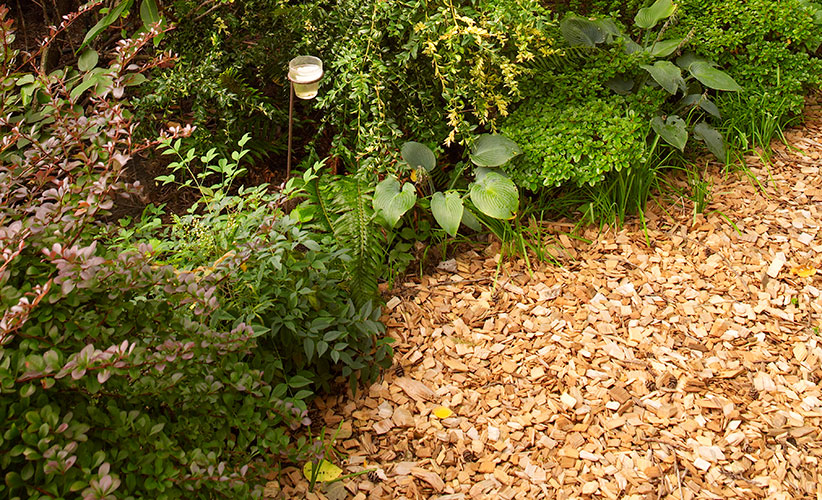
- Pine needles: Pine needles are a soft and fragrant mulch that is well-suited for use around trees and shrubs. They are also a good choice for use in areas where you want to discourage pests, as pine needles contain natural insect repellents.

- Bark mulch: Bark mulch is a more durable option than wood chips and pine needles. It can last for several years, and it is less likely to wash away or blow away in the wind. Bark mulch can also help to improve the drainage of your landscape.
- Straw: Straw is a good choice for use in vegetable gardens. It is relatively inexpensive and easy to find, and it can help to suppress weeds and keep the soil moist. Straw can also help to improve the drainage of your vegetable garden.
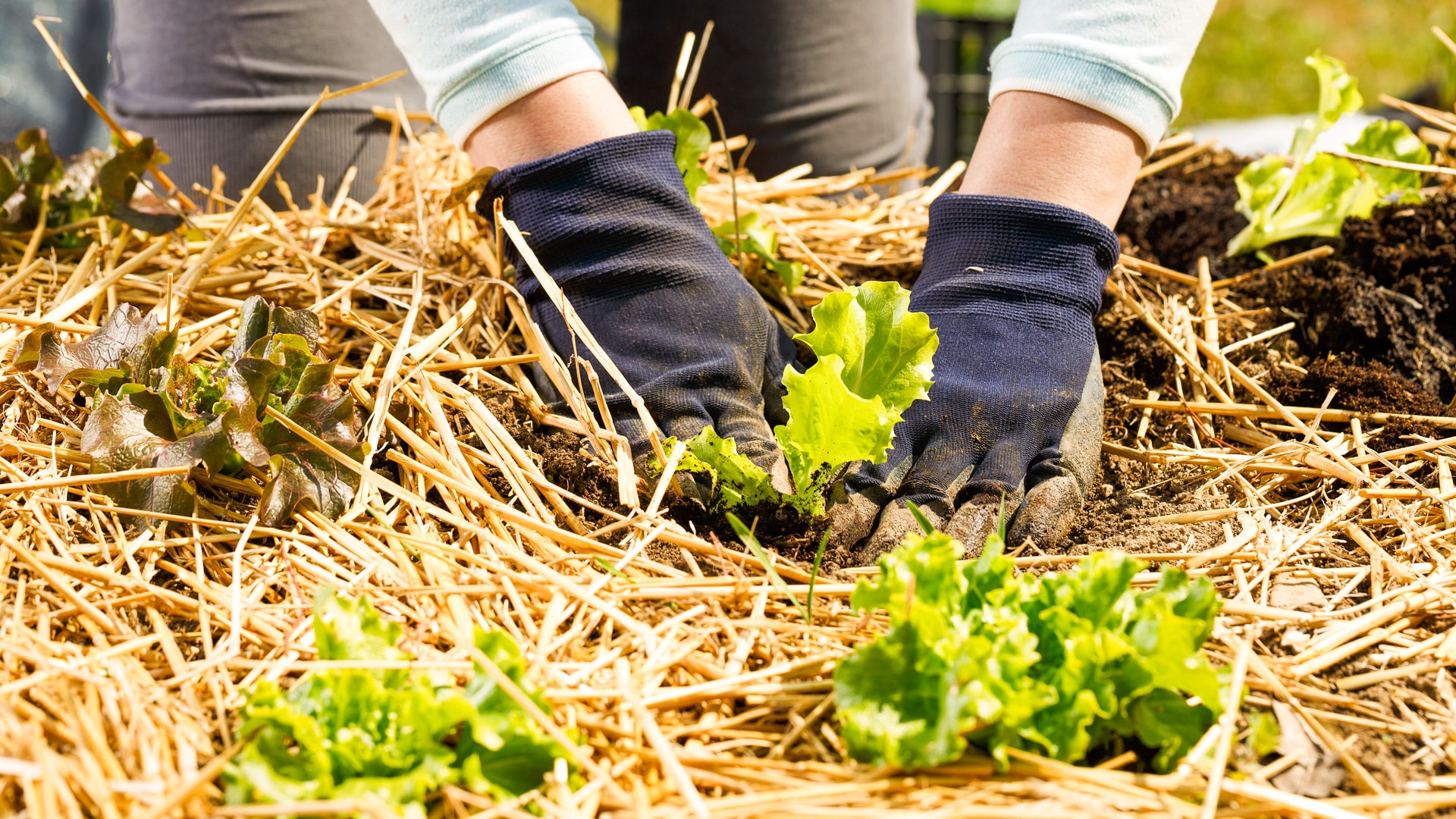
- Gravel: Gravel is a more permanent option than organic mulches. It can last for many years, and it is not susceptible to rotting or decomposing. Gravel can help to improve the drainage of your landscape, and it can also add visual interest.
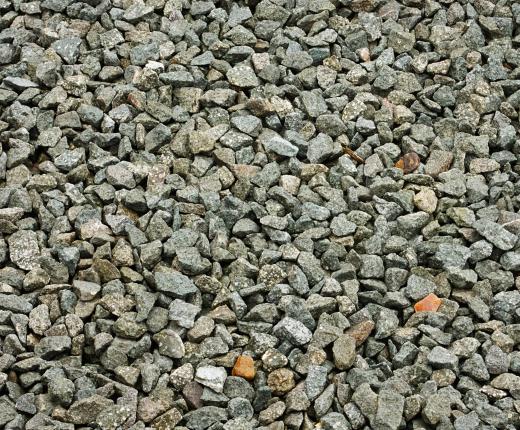
Main Content:
When choosing the best mulch for your landscaping, there are a few factors you should consider:
- The type of plants you are growing: Some plants prefer certain types of mulch. For example, evergreens often do well with pine needles, while vegetables may benefit from straw.
- The climate in your area: If you live in a hot climate, you may want to choose a mulch that will help to retain moisture in the soil. If you live in a cold climate, you may want to choose a mulch that will help to insulate your plants.
- The amount of maintenance you are willing to do: Some mulches, such as wood chips, need to be replenished more often than others, such as gravel.
- Your budget: Mulch can range in price from a few dollars per bag to several hundred dollars per yard.
Once you have considered these factors, you can start to narrow down your choices. If you are still not sure which mulch is right for you, consult with a local nursery or garden center.
Conclusion:
Mulch is a valuable tool for any landscaper. By choosing the right type of mulch for your plants and climate, you can improve the health, appearance, and longevity of your landscape.
There are many different types of mulch available, so it can be difficult to know which one is the best for your landscaping needs. The Home Gardening has a comprehensive guide to the best mulch for landscaping, which can help you choose the right one for your plants, climate, and budget.
The guide covers a variety of factors to consider when choosing mulch, such as:
- The type of plants you have
- The climate you live in
- The amount of sunlight your landscaping area gets
- Your budget
The guide also provides information on the different types of mulch available, including:
- Wood chips
- Bark mulch
- Pine needles
- Straw
- Cocoa bean hulls
- Rock mulch
Once you've read the guide, you'll be able to make an informed decision about the best mulch for your landscaping needs.
FAQ of best mulch for landscaping
- What is the best mulch for landscaping?
The best mulch for landscaping depends on a variety of factors, including the climate, the type of plants you are growing, and your personal preferences. Some of the most popular mulches for landscaping include:
* Wood chips: Wood chips are a natural and affordable mulch that is available in a variety of colors. They help to retain soil moisture, suppress weeds, and improve drainage.
* Bark mulch: Bark mulch is another natural and attractive mulch that is available in a variety of colors. It is more expensive than wood chips, but it also lasts longer.
* Pine needles: Pine needles are a soft and acidic mulch that is ideal for acid-loving plants, such as azaleas and rhododendrons. They help to retain soil moisture and suppress weeds.
* Compost: Compost is a nutrient-rich mulch that can help to improve the soil quality in your landscape. It is also a good choice for suppressing weeds.
* Stone mulch: Stone mulch is a long-lasting and attractive option that does not require much maintenance. It is not as effective at suppressing weeds as other types of mulch, but it can help to retain soil moisture and reduce erosion.
- How much mulch should I use?
The amount of mulch you need will depend on the size of the area you are mulching. In general, you should apply a layer of mulch that is 2-4 inches thick. If you are using a finer mulch, such as compost, you may need to apply a thicker layer.
- How often should I reapply mulch?
The frequency with which you need to reapply mulch will depend on the type of mulch you are using and the climate in your area. In general, you should reapply wood chips or bark mulch every 2-3 years. Compost and pine needles should be reapplied every year. Stone mulch does not need to be reapplied as often, but you may need to add more if it starts to wash away or wear down.
- What should I put down before mulch?
Before you apply mulch, you should remove any weeds or debris from the area. You may also want to apply a pre-emergent herbicide to prevent weeds from growing.
- How do I prevent mulch from washing away?
If you live in an area with heavy rains, you may need to take steps to prevent mulch from washing away. One way to do this is to create a berm around the edge of the mulched area. You can also use landscape fabric or edging to keep the mulch in place.
- What are the benefits of using mulch?
Mulch offers a number of benefits for your landscape, including:
* Retains soil moisture: Mulch helps to keep the soil moist, which can help your plants to thrive.
* Suppresses weeds: Mulch creates a barrier that prevents weeds from germinating.
* Improves drainage: Mulch helps to improve drainage by breaking up the soil and allowing water to flow more freely.
* Protects plants from the elements: Mulch can help to protect plants from the cold, heat, and wind.
* Adds nutrients to the soil: As mulch breaks down, it releases nutrients into the soil, which can help to improve plant growth.
Image of best mulch for landscaping
- Shredded bark mulch: This is a popular choice for landscaping because it is relatively inexpensive and easy to find. It comes in a variety of colors, including brown, black, and red. Shredded bark mulch helps to retain moisture in the soil, suppress weeds, and improve the appearance of your landscape.
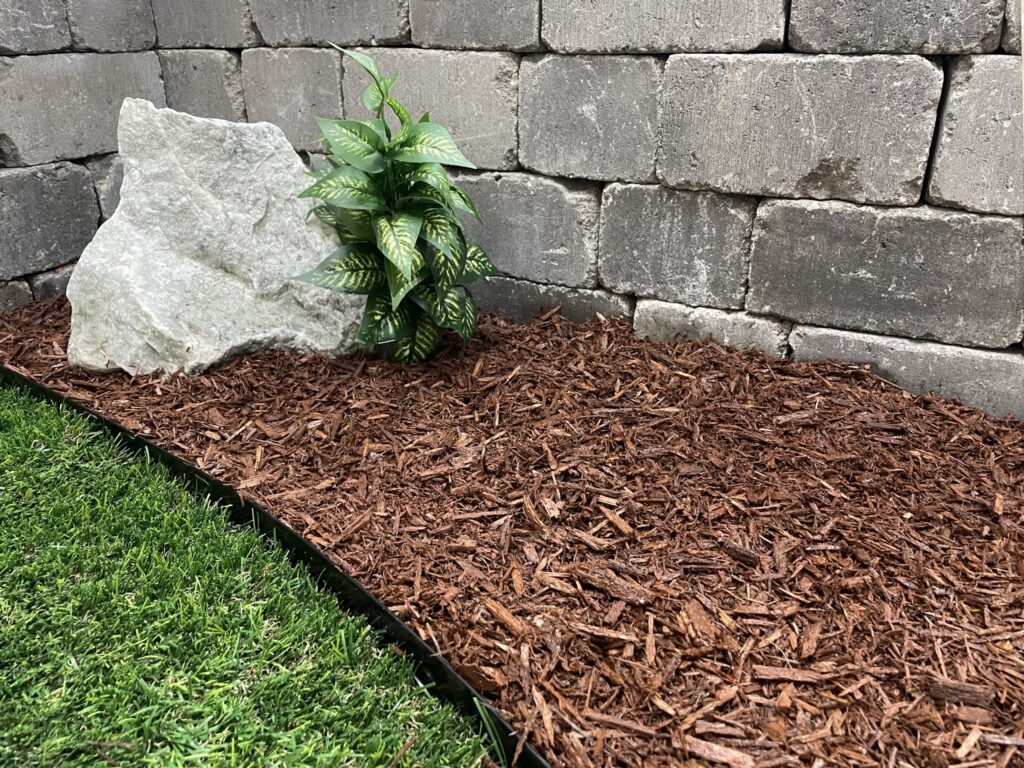
- Wood chips mulch: Wood chips are another popular choice for landscaping. They are a bit more expensive than shredded bark mulch, but they also last longer. Wood chips come in a variety of colors, including brown, black, and red. They also help to retain moisture in the soil, suppress weeds, and improve the appearance of your landscape.
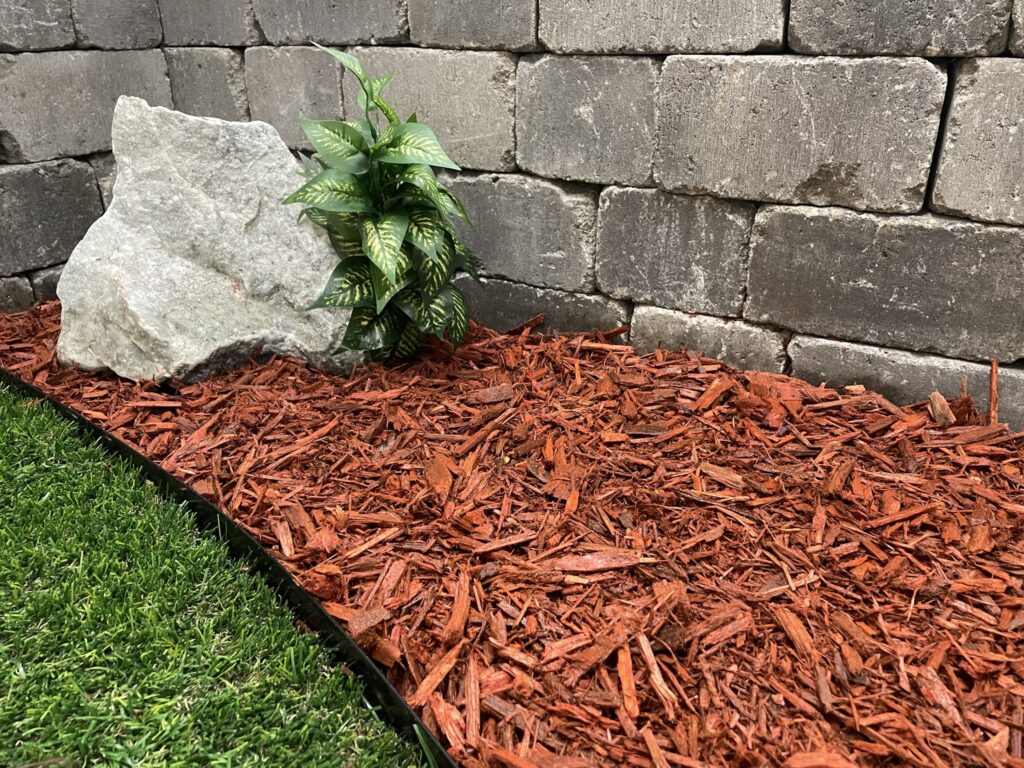
- Pine needles mulch: Pine needles are a good choice for landscaping in areas with acidic soil. They help to acidify the soil, which is beneficial for plants that prefer acidic soil, such as azaleas and rhododendrons. Pine needles also help to retain moisture in the soil and suppress weeds.

- Cocoa bean mulch: Cocoa bean mulch is a unique and attractive choice for landscaping. It has a rich brown color and a chocolatey aroma. Cocoa bean mulch is also decomposable, so it helps to improve the soil over time. However, it is important to note that cocoa bean mulch can be messy if it gets wet.

- Erosion control mulch: Erosion control mulch is designed to prevent soil erosion. It is typically made from materials such as straw, wood fiber, or rubber. Erosion control mulch is often used in areas that are prone to erosion, such as slopes or around water features.
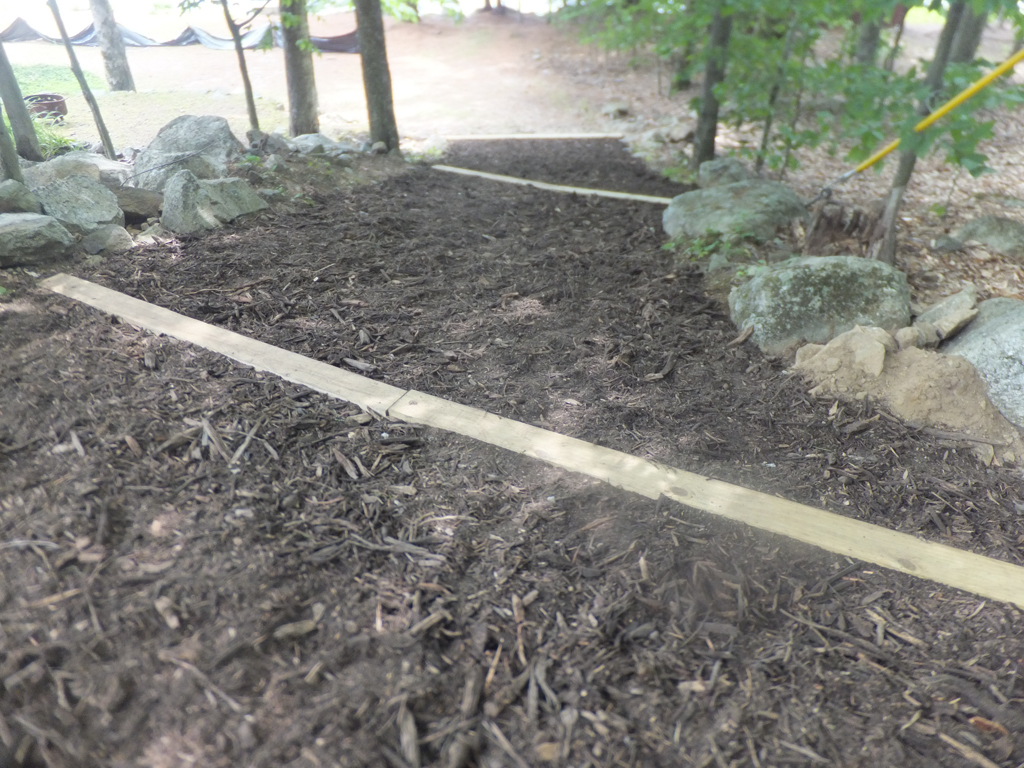
- Garden compost mulch: Garden compost mulch is made from organic materials that have been decomposed. It is a good choice for landscaping because it is beneficial for the soil. Garden compost mulch helps to improve the drainage of the soil, retain moisture, and suppress weeds.

- Rock mulch: Rock mulch is a durable and long-lasting choice for landscaping. It is available in a variety of colors and sizes. Rock mulch can be used to create a variety of looks in your landscape, from formal to informal.

- Seashell mulch: Seashell mulch is a unique and attractive choice for landscaping. It has a light, airy texture and a beautiful sheen. Seashell mulch is often used in coastal gardens or in gardens with a tropical theme.

- Cypress mulch: Cypress mulch is a popular choice for landscaping in the southern United States. It is made from cypress trees, which are native to the region. Cypress mulch is a good choice for retaining moisture in the soil and suppressing weeds.

- Gravel mulch: Gravel mulch is a durable and low-maintenance choice for landscaping. It is available in a variety of colors and sizes. Gravel mulch can be used to create a variety of looks in your landscape, from formal to informal.

Post a Comment for "Which Mulch Is Best For Landscaping"